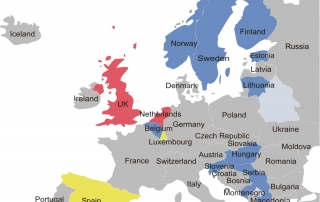Documents not in a file
Helen Darbishire2018-11-13T10:14:04+01:00The Spanish Ministry of Culture refuses to provide information: On the grounds that the documents «are not part of a file» 17 September 2008 Access Info Europe today launched its campaign to litigate in defence of the right of access to information in Spain with a legal challenge against the Ministry of Culture for refusing to release information on how copyright royalties are spent. The request made by a citizen to the Ministry of Culture was for copies of the annual reports by Spain’s General Association of Authors (the SGAE) as well as the VEGAP (the society that manage the intellectual

